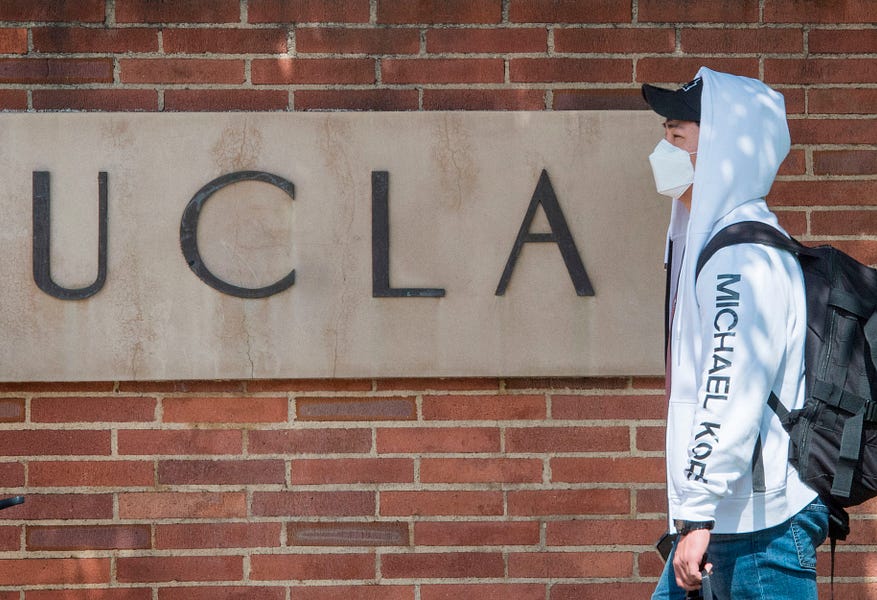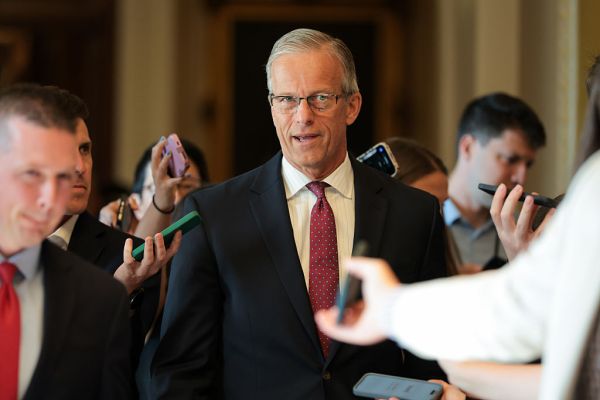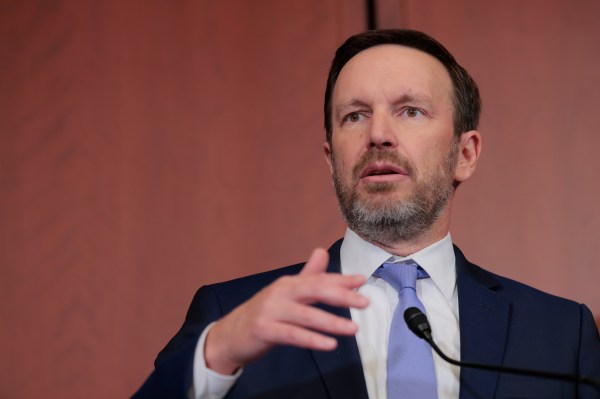There’s no denying that the new spike in COVID-19 cases we are seeing is driven by “younger Americans.” Some states are re-closing bars and restaurants, or pausing other reopening measures. Dr. Anthony Fauci might have put it best when he told a Senate committee, “Bars: really not good, really not good.” But people are seeing the word “younger” and misreading it as “college kids.”
At best, that doesn’t tell the whole story. At worse, it’s an unfair indictment. Early in the pandemic, people mocked spring breakers on Florida beaches and a Penn State professor recently took to Esquire to complain about the idea of in-person classes in the fall because, “students being students will do what students have always done: congregate in packs, drink heavily, and comingle.” But cases are rising not just among Gen Z but also Americans in their 30s and 40s.
As a professor who has had the pleasure of working with thousands of students over the past decade, these denouncements are inappropriately critical of this new generation coming of age into the world.
While it is absolutely true that professors and members of the higher education community should worry about school campuses reopening because traditional teaching and social distancing will be truly impossible and due to the inevitability that some students will make foolish decisions which could spread coronavirus, the fact of the matter is that our Gen Z students are well aware of the dangers of COVID-19 and are not looking to engage in dangerous behaviors.
New data from the AEI Survey on COVID-19 and American Life makes it abundantly clear that Gen Z—those Americans born after 1996, is the cohort presenting in college, and constituting 24 million eligible voters come this fall—has been regularly mischaracterized as selfish, disconnected from and unconcerned with the pandemic reality; this is simply not a fair representation. When asked in June 2020 whether or not the worst of the COVID-19 pandemic is behind us or whether the worst is yet to come, 54 percent of Gen Z respondents said that the worst is yet to come, and they were the most pessimistic age cohort in the nation. (Just more than a third of those in the “Silent Generation” though that the worst is yet to come.)
Relatedly, 41 percent of those in Gen Z personally knew someone who has contracted COVID. This is close to the national average, so this is not a situation where younger, college age Americans are simply unaware of the damage the virus has caused so many. Further, 50 percent of Gen Z was worried about the possibility that they themselves or someone in their households might contract the coronavirus. While this figure is lower than the 64 percent figure for those in Gen X or the 61 percent of boomers who were worried, it remains a significant number.
Moreover, those in Gen Z are fully cognizant of the impact the pandemic has had on the economy and family life. When asked about how many of one’s immediate family members and close friends have lost their job due to the coronavirus outbreak, those in Gen Z were at the high end: 28 percent said half or more of those in their close networks have lost their jobs or were laid off. Even if these jobs were hourly campus related jobs, they are essential sources of income for many students and young Americans. This figure is notably higher than the 18 percent national average and the 11 percent of boomers. And 31 percent of those in Gen Z stated that they themselves lost their own jobs or were laid off, which is appreciably above the national average of 20 percent and Gen Xers, who were at 22 percent. These numbers are significant and one cannot possibly argue that Gen Z is not well aware of COVID-19 and its impacts on economic well-being.
The study also shows that those in Gen Z are being cautious and show little desire to be reckless despite the occasional and sensational stories that make the news and go viral. Fully 85 percent report wearing a face mask or face covering when they have left their homes.
Thinking about collegiate life, these appropriate sensibilities continue. A significant number of students fly to and from their campuses, and 72 percent of those in Gen Z report that they were uncomfortable with flying in the midst of the pandemic. While the data shows that older groups were even more uncomfortable—like 77 percent of millennials and 82 percent of boomers—there is no denying that a very large majority of younger Americans are worried about travel.
Going further, 86 percent of Gen Zers are uncomfortable with public transit—a feature of many urban and large campuses alike—which is comparable to Gen X and higher than older groups such as millennials and boomers. With respect to attending a sporting event—an activity that bonds many schools together but can pose huge risks for viral transmission—75 percent state that they were uncomfortable which is in parity with other cohorts like boomers at 74 percent and millennials at 77 percent.
Finally, the survey reveals that Gen Zers respect those who have expertise. When Americans are asked if people with proficiency in a subject area are usually better at making good decisions than other people, 76 percent agreed with this statement and this is in line with the rest of the nation.
Now it is true that those in Gen Z have remained more social: 61 percent report having socialized with friends, relatives, or neighbors, compared with 49 percent of boomers. But given how seriously worried those in Gen Z are about safety and engaging in previously normal activities, there is little reason to think that students would be willing to return in the first place and, if they do, to assume that college campuses would be completely chaotic and dangerous come this fall.
Thus as the school year approaches, it is critical that members of the higher education community stop generalizing and reducing our students into stereotypes of immaturity and irresponsibility.
Gen Z is an emerging socio-political generation which is noted for being centrist, empathetic, and open pragmatists. These younger Americans are well aware of the dangers of COVID-19 and may not even want to show up on campus this fall. Many faculty are not particularly enthusiastic about their schools reopening and trying to both house and teach students on campus with no clear medical treatments or a vaccine in sight. But it is also a mistake to presume that students want to return and will engage in behaviors that could spread the virus. Gen Zers are owed more respect than what is regularly seen in the press and on social media and the data make abundantly clear that this pandemic is impacting them, their thinking, and their behaviors.
Samuel J. Abrams is professor of politics at Sarah Lawrence College and a visiting scholar at the American Enterprise Institute.
Photograph by Mark Ralstone/AFP/Getty Images.






Please note that we at The Dispatch hold ourselves, our work, and our commenters to a higher standard than other places on the internet. We welcome comments that foster genuine debate or discussion—including comments critical of us or our work—but responses that include ad hominem attacks on fellow Dispatch members or are intended to stoke fear and anger may be moderated.
With your membership, you only have the ability to comment on The Morning Dispatch articles. Consider upgrading to join the conversation everywhere.